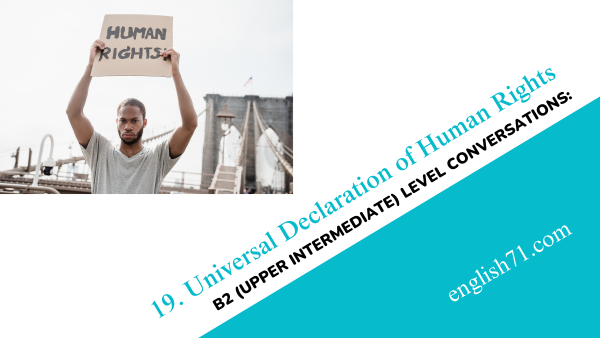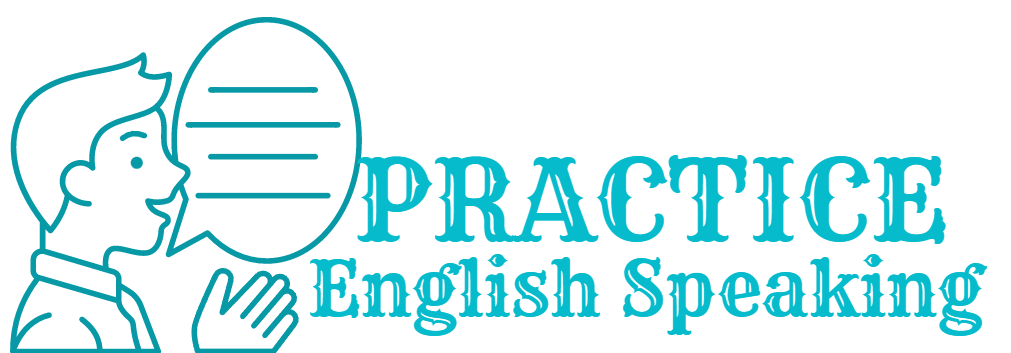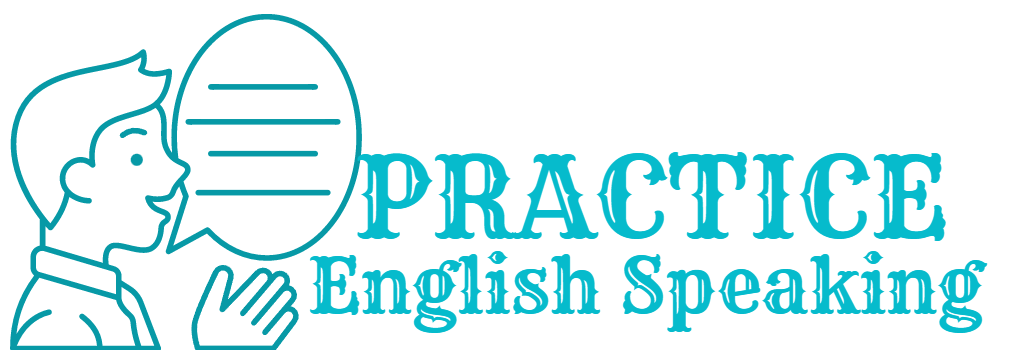B2 (Upper Intermediate) level Conversations: (19) Universal Declaration of Human Rights

Richa: Hey, Peter! Have you ever delved into the Universal Declaration of Human Rights?
Peter: Absolutely, Richa! It’s a foundational document, but I must admit, I haven’t revisited it recently. What sparked your interest?
Richa: Well, I stumbled upon it during some research on human rights issues. It’s fascinating how it addresses fundamental rights and freedoms for all.
Peter: It’s a landmark document, adopted in 1948, right after World War II. I appreciate its emphasis on equality, dignity, and justice.
Richa: Exactly! The recognition of inherent rights regardless of race, religion, or nationality is crucial. It sets a standard for a just and equal world.
Peter: The emphasis on individual rights and freedoms is significant. It’s like a universal guide for ensuring every person’s dignity is respected.
Richa: I was particularly struck by Article 1, asserting that all human beings are born free and equal. It lays a solid foundation for the entire declaration.
Peter: True, and Article 3 emphasizes the right to life, liberty, and security of person. It’s the bedrock of personal freedom.
Richa: I also appreciate how it goes beyond civil and political rights. Economic, social, and cultural rights are acknowledged, fostering a holistic approach.
Peter: Right, the right to work, education, and an adequate standard of living are highlighted. It’s a comprehensive vision for human well-being.
Richa: I’m glad you brought that up. It’s not just about protecting individuals from government abuse but also ensuring a decent quality of life.
Peter: The document reflects the post-war commitment to preventing the atrocities witnessed during that time. It’s like a collective promise to uphold humanity.
Richa: I completely agree. The principles laid out are timeless and should guide societies toward progress and justice.
Peter: Have you found any specific articles that resonate with you or align with contemporary issues?
Richa: Article 21 about the right to participate in government is quite pertinent today. It speaks to the essence of democracy and citizens’ active involvement.
Peter: Absolutely, especially in the context of promoting transparent and accountable governance. It’s a crucial aspect of a functioning democracy.
Richa: Reading it again makes me appreciate the foresight of those who drafted it. It’s a beacon for human rights, transcending cultural and political differences.
Peter: Well said, Richa. The Universal Declaration of Human Rights remains a guiding light, reminding us of our shared commitment to a more just and compassionate world.
Richa: Couldn’t agree more, Peter. It’s a document that should continue to inspire positive change for generations to come.



Summary:
Richa and Peter engage in a thoughtful conversation about the Universal Declaration of Human Rights. They highlight the document’s significance in establishing fundamental rights and freedoms for all individuals, regardless of race, religion, or nationality. Both appreciate its emphasis on equality, dignity, and justice, with Peter noting its role as a guide for ensuring personal freedom and security. They delve into specific articles, such as the right to life and participation in government, recognizing the document’s timeless principles and its relevance to contemporary issues. Richa and Peter express admiration for the foresight of those who drafted the declaration, considering it a beacon for human rights and a collective promise to uphold humanity. Their discussion underscores the document’s enduring importance in inspiring positive change for a more just and compassionate world

